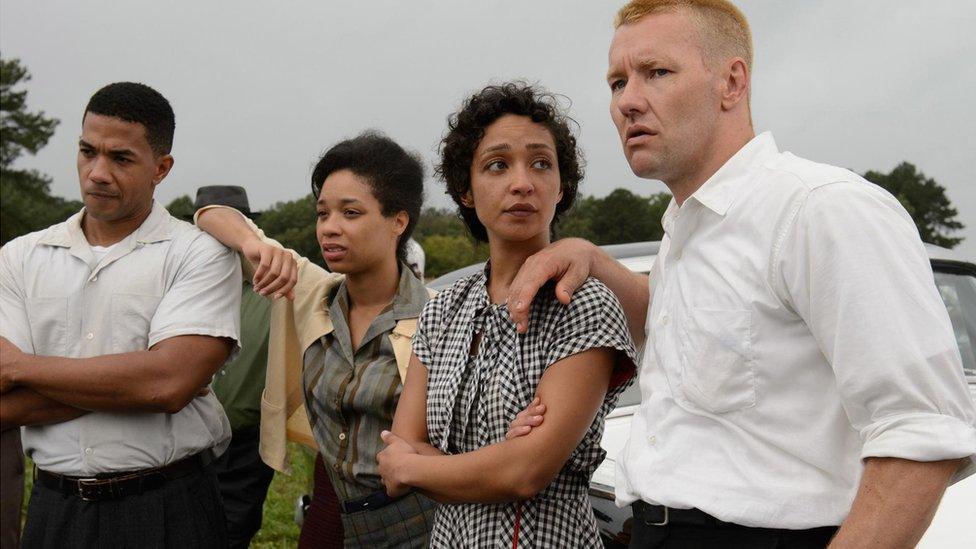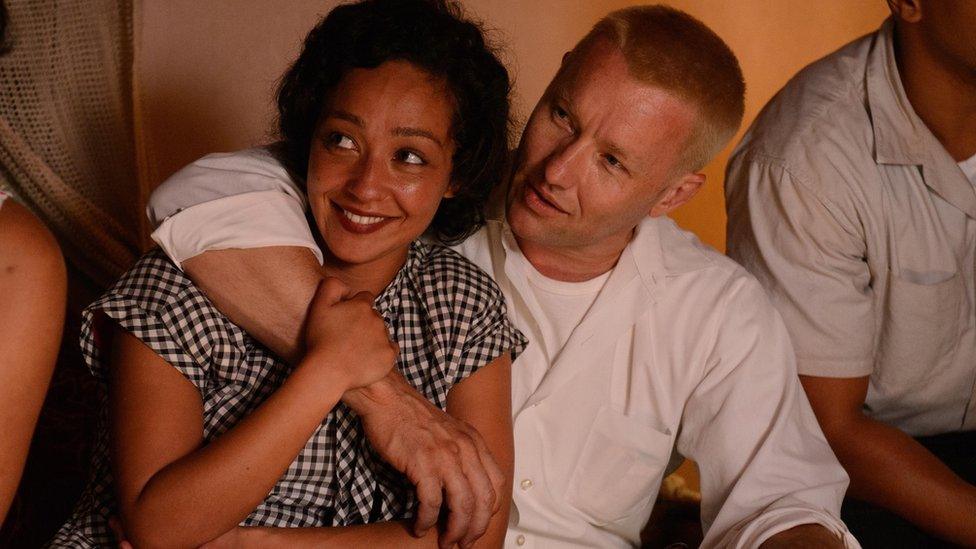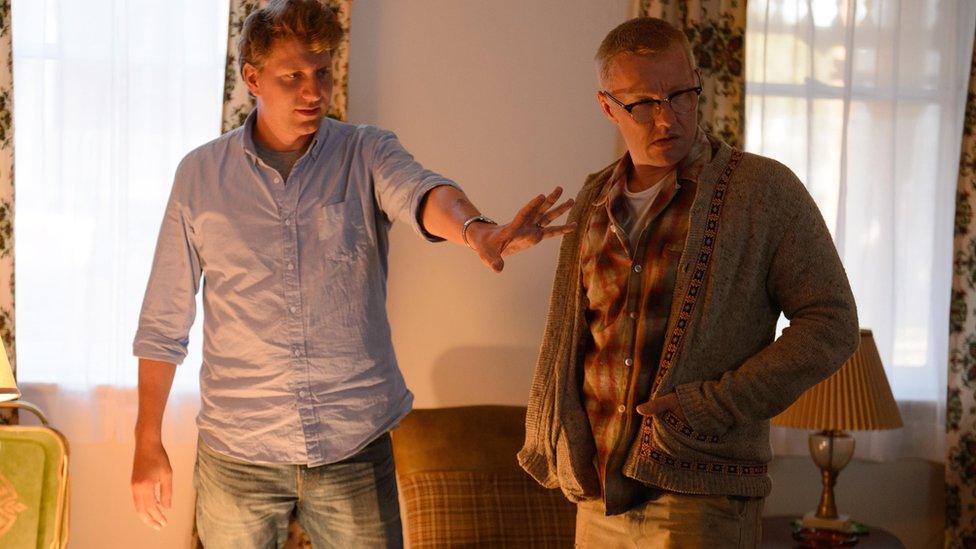Loving: A quiet film set to make some noise
- Published

Loving tells the true story of Richard Loving and Mildred Jeter, who fell foul of segregation laws in 1950s America
The director of Palme d'Or hopeful Loving explains why the story of the US couple who helped overturn laws banning interracial marriage deserves retelling.
"Almighty God created the races… and he placed them on separate continents. The fact that he separated the races shows that he did not intend for the races to mix."
These were the very words used by a judge in Virginia in 1965 to defend the US state's segregation laws that prohibited interracial unions.
Richard Loving and Mildred Jeter, from Central Point in Virginia, fell foul of these laws in 1958 when their marriage in Washington DC was deemed unacceptable back home.
Indicted for violating Virginia's Racial Integrity Act, the couple were given a suspended prison sentence and were told to leave and not return "together or at the same time… for a period of 25 years".
Richard and Mildred reluctantly did as they were ordered and moved in with cousins in their nation's capital.

Irish actress Ruth Negga and Australian actor Joel Edgerton star as the lead characters in the film
In 1963, however, Mildred wrote a letter to Attorney General Robert F Kennedy that led to their case being taken up by the American Civil Liberties Union (ACLU).
Six years later, the Supreme Court decreed their sentence to be unjust and ruled the laws behind it were unconstitutional.
Yet it is the story behind the headlines that director Jeff Nichols wanted to tell in Loving, which received its world premiere this week at the Cannes Film Festival.
According to Arkansas-born Nichols, rewriting history was the last thing on the minds of Richard, a bricklayer, and Mildred, a mother of three.
"The Lovings weren't trying to preach," he told the BBC. "The Lovings were just trying to get through life.
"They didn't sit around and talk about the ramifications of what they were involved in. The court case could fill a whole film in itself. But I didn't want it to overtake the love story.
"That's what their story provides: A human entry point into these big social topics and big political ideas."
Central to Loving is its use of silence. Courtroom speeches are kept to a minimum, while neither of its leads are prone to excessive articulation.
"These are people who do not convey their emotions very readily or easily, and the film reflects that," agrees Nichols.

Director Jeff Nichols said Loving was 'a film that needs to be seen'
Loving is already making some noise, having been tipped for accolades in the end-of-year awards season by many who have seen it at Cannes.
At a press conference this week, the film's stars - Australian Joel Edgerton and the Irish actress Ruth Negga - were even asked if they had their acceptance speeches pre-written.
"Yes, I've got it here," quipped Edgerton, who previously worked with Nichols on his fantasy drama Midnight Special.
It is a conversation the director is content to be a part of, as long as the film's message is not drowned out by the ensuing hubbub.
"This is a film that needs to be seen," he declares. "So if being in that conversation gets it out into the world more, great - I'm willing to accept it.
"The downside will be if [the press] only talk about the film in terms of how it operates in the awards season, which has nothing to do with the price of tea in China.
"We want people to talk about what the film is about, and not what the film can do in an awards circuit.
"Those are two different conversations, one of which is silly and one very important."
Loving will be released in the US in November. A UK release date has yet to be finalised.
- Published16 May 2016
